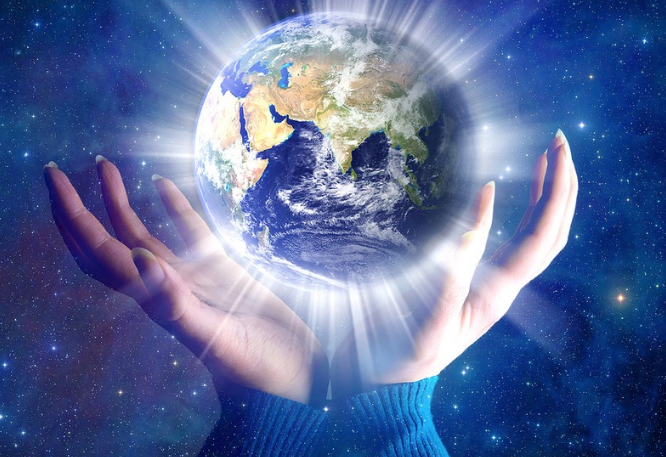In the modern fabric of society, the concept of collective consciousness emerges as a pivotal element in the quest for spiritual education. The Bahá’í Faith, with its profound teachings and emphasis on unity, offers a compelling framework through which individuals and communities can cultivate this consciousness. Understanding the intrinsic link between spiritual education and collective advancement becomes essential for nurturing a harmonious existence.
The Bahá’í teachings assert that true education transcends mere intellectual acquisition; it encompasses the holistic development of the individual, integrating the spiritual, moral, and social dimensions. This approach establishes a distinctive paradigm where the enhancement of individual character is seen as directly correlated with the welfare of the community. The notion of collective consciousness within this framework hinges on the premise that the elevation of individual souls invariably uplifts the entirety of humanity.
At the heart of Bahá’í spiritual education lies the imperative of developing virtues such as love, compassion, and humility. The refinement of such attributes facilitates the formation of a more conscious collective society. This leads to the essential exploration of various types of educational content readers can expect within the Bahá’í context—specifically, the diverse modalities and themes that characterize spiritual education.
One category of content revolves around the integration of scriptural study and application. Central to the Bahá’í Faith are the writings of Bahá’u’lláh, which provide deep insights into the nature of God, humanity, and the universe. By engaging with these texts, individuals embark on a transformative journey, encouraged to internalize spiritual principles that foster both personal growth and cohesive community dynamics. The wisdom encapsulated in these scriptures serves as a compass, guiding adherents towards understanding their purpose and the interconnectedness of all beings.
Additionally, participatory learning experiences are integral to the Bahá’í educational ethos. Workshops, study circles, and community discussions exemplify collaborative methods aimed at deepening understanding and application of spiritual teachings. In these settings, individuals share perspectives, encourage one another, and engage in meaningful dialogue, thereby enriching the collective consciousness. This communal learning fosters an environment where spiritual edification occurs in tandem with interpersonal connectivity.
Another vital aspect of Bahá’í spiritual education is the emphasis on service and social action. This dimension entails translating spiritual knowledge into tangible societal benefits. The teachings advocate for proactive engagement in community service, which acts as a conduit for the application of spiritual principles. Readers may discover various projects and initiatives within the Bahá’í community that address pressing social issues, underscoring the responsibility of every individual to contribute positively to the collective welfare. Such endeavors illuminate the path towards a more unified global society, demonstrating that spiritual concepts must find expression in concrete action.
The incorporation of arts and culture also emerges as a compelling theme. The Bahá’í Faith recognizes the potency of creative expression in fostering collective consciousness. Artistic endeavors—whether through music, literature, or visual arts—serve as a medium for conveying spiritual truths and cultivating empathy. By embracing diverse cultural expressions, individuals celebrate the rich tapestry of human experience, promoting a sense of belonging and interconnectedness. The arts offer a unique lens through which the transcendent nature of humanity can be appreciated, enabling a deeper understanding of the spiritual journey.
Moreover, the exploration of scientific principles in conjunction with spiritual teachings forms another pivotal area for readers. The Bahá’í perspective posits that science and religion are complementary, each illuminating aspects of existence that enhance our understanding. Discourses that bridge these domains allow for a more comprehensive exploration of reality, encouraging individuals to engage with the mysteries of existence through both spiritual insight and empirical investigation. Consequently, this integration fosters a collective attitude of inquiry, where the pursuit of knowledge becomes a shared endeavor, further deepening the community’s collective consciousness.
As the world navigates an era fraught with challenges, the teachings of the Bahá’í Faith resonate with great urgency. The doctrine of collective consciousness and the corresponding necessity for spiritual education urgently call for individual and collective introspection. The transformative journey towards unity, spurred by deepened understanding and virtuous action, is not merely a personal endeavor but a communal commitment that paves the way for a more equitable and just world.
Readers will also find pertinent discussions surrounding the role of youth in the propagation of collective consciousness. The Bahá’í community places significant emphasis on empowering young people as catalysts for change. Educational content dedicated to youth highlights the importance of cultivating leadership skills, fostering a sense of responsibility, and promoting active participation in community life. By engaging with the inner workings of society, the younger generation embodies the principles of the Bahá’í Faith, thereby shaping the future toward a more enlightened and unified collective.
In conclusion, the Bahá’í teachings elucidate the profound connection between collective consciousness and spiritual education. By engaging with diverse educational content—ranging from scriptural study and communal engagement to social action and cultural exploration—individuals embark on a significant journey of transformation. This collective quest for spiritual elevation serves not only the individuals involved but also the broader tapestry of humanity, reinforcing the imperative that as our consciousness expands, so too does our capacity for love, unity, and peace within the global community.
